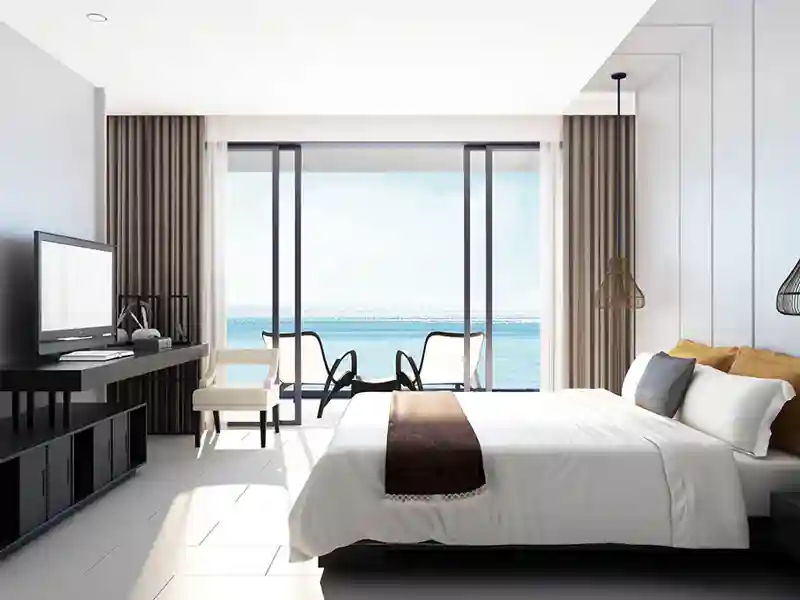
At many resorts and hotels, the changes are noticeable from the moment one drives up. Suspended valet parking services. Temperature taking at the door. Limited seating in bars and dining rooms. Spas closed, exercise room access limited and pools monitored for capacity. A call to the front desk for extra towels could result in a robot delivering them.
This is today's hospitality environment.
As the industry finds its way back from an incomparable year of closures and revenue loss, there is hope.
The industry, however, is not waiting. As isolation-weary travelers and grounded businesses look for ways to travel safely, hotels and resorts are tweaking amenities and bolstering cleaning as ways to attract guests.
Amenities that were standard fare of the industry - complimentary breakfasts, spa services, exercise rooms - are on pause. However, hotels and resorts are replacing them with doctors on demand, contactless check-in, face masks and free virus testing.
Gone are breakfast buffets. Where possible, hotels and resorts are opting instead for outdoor dining areas. Gone too are the card keys. Some hotels, such as Marriott, have launched digital keys on the hotel apps, allowing guests to open their doors using their phones.
In all likelihood, such changes could become permanent. With a heightened focus on cleanliness and maintaining physical distance, hotels and resorts are reimagining how to build flexibility and stricter safety protocols into their operations while providing a more advanced customer experience.
That includes whether to require vaccinations of their visitors and guests. At present, the hospitality industry is not requiring visitors and guests to be vaccinated. In fact, some hotel chains are offering vaccinations to their guests, while resorts are serving as pop-up vaccination locations.
For amusement parks, the latest safety measures do not require vaccination proof, but do require masks, temperature checks, physical distancing and a reduced numbers of visitors. Parks are also adopting more contactless options, such as cashless transactions and enhanced cleaning.
Insuring the new business model
Even with increased safety measures, testing and guest requirements, hotels, amusement parks and resorts are at increased risk of exposure by simply operating during a pandemic. Guest safety, changes to the property to accommodate new safety requirements, and capacity restrictions are impacting the insurance programs for those in the industry.
While reduced business in 2020 led to fewer claims, the insurance market is experiencing a hardening across all lines, particularly noticeable in property coverage. Along with the new exposures brought on by the pandemic, hotels, theme parks and resorts still have the slip-and-fall injuries, foodborne illnesses, employee practices issues and guest liability.
NFP recommends organizations review policies early. Are property values updated? Are the correct workers compensation payrolls in place? Are revenues adjusted appropriately for any business interruption coverage?
With business interruption in particular, estimating business interruption claims on the prior year's receipts is a practice in need of adjustment. With the industry rebounding, owners and operators should be reviewing 2019's receipts, 2020's projections pre-pandemic and looking at 2021's projected revenue, factoring in recovery.
Another consideration? How COVID-19 and communicable disease exposures will be mitigated. Since communicable disease is an excluded exposure, organizations should be talking with their brokers about other risk management options, and any potential alternative risk transfer vehicles.
NFP's hospitality experts can review your operations and your current coverage and help you identify ways to improve your risk portfolio. We reach out to insurance, reinsurance and captive markets to help clients locate right-fit coverage options. Our relationships with leading markets and providers give your organization access to experts and resources that can improve how you conduct business.
Moving forward confidently
Today's hospitality industry has faced extraordinary challenges and has evolved and adapted to meet those challenges. Those changes could become part of the environment long after the pandemic ends.
It's imperative that organizations examine how those changes impact operations from both risk management and opportunity perspectives. Building a more flexible, responsive business can help keep your operations moving forward and keep your customers returning.
For more information, visit NFP.ca.